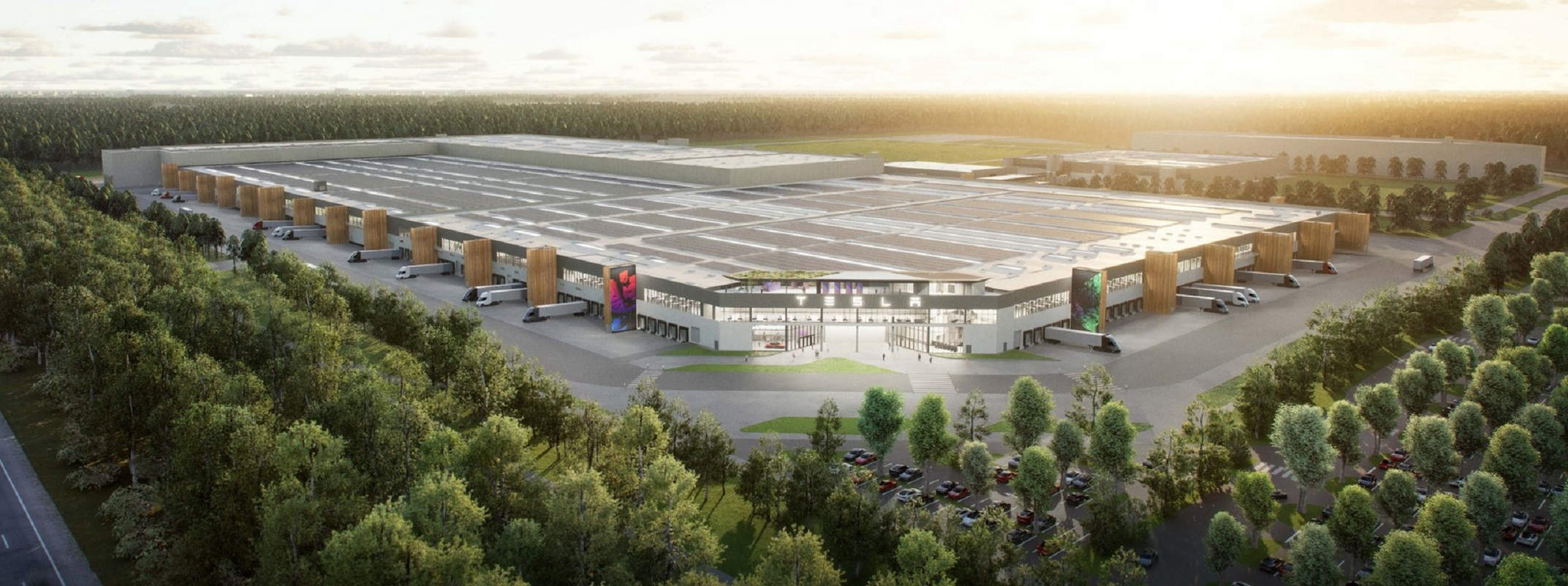Tesla Berlin gigafactory launch hailed as “model” for investment projects in Germany
Tesla has opened its first European e-car production hub with the gigafactory near Germany’s capital Berlin, shaking up the industry in the birthplace of the internal combustion engine. Tesla head Elon Musk handed over the first electric cars produced at the site to clients. Musk had invited top-level government representatives such as chancellor Olaf Scholz and economy minister Robert Habeck to the opening ceremony, who hailed the speed of the factory's planning and construction.
With a view to the comparatively short construction time of two years, chancellor Olaf Scholz said: "Germany can be fast," reported public broadcaster rbb. In a message on Twitter he called the opening an "important sign" that shows Germany is "a strong location for industrial investment. This is how we will succeed in becoming climate neutral and lead the transformation. The future belongs to electromobility."
Start of production at the gigafactory is a crucial day for the mobility transition in Germany, said economy and climate minister Robert Habeck at the factory. "The path towards electromobility is another step away from oil imports," he added, making a connection to the current energy supply debates following the invasion of Ukraine. Russia's war against Ukraine has forced Germany and the EU to radically rethink their energy policy, given that the continent is heavily dependent on Russian fossil fuels. Handelsblatt quoted Habeck as saying: “To show we can not only replace oil with oil, but we can electrify, is of course a beautiful symbol on this day.”
The arrival of Tesla's "gigafactory" near Berlin has sparked a lot of debate in the past two years. It is set to churn out hundreds of thousands of electric cars in the birth country of the combustion engine. The plant will shake up the car industry in Germany and Europe, and accelerate regional development, as well as the shift to electric mobility.
After a long and drawn-out process, authorities granted the project a final conditional permit on 4 March. German law allowed the company to proceed with construction and the basis of provisional licences, despite questions regarding the factory's environmental impact. Tesla largely completed the car factory before receiving final permission. At full capacity, the plant will produce 500,000 cars a year, more than the 450,000 battery-electric vehicles that German rival Volkswagen sold globally in 2021, wrote Reuters. It would also generate 50 gigawatt hours (GWh) of battery power, surpassing all other plants in Germany.
The transition to electric cars is rapidly gathering pace in Europe. Last year, registrations of purely electric cars in Germany soared 83 percent to reach a share of 14 percent, while the number of new hybrid cars (including plug-ins) rose more than 40 percent to a total share of 29 percent.
Only days ago, the German government announced that it would support the European Commission efforts to phase out the combustion engine for newly registered passenger cars by 2035 – a shift that large parts of the country’s car industry have criticised for years, as many companies depend on the production of conventional cars. The Commission’s proposal is currently being debated by member state governments and the European Parliament.
Industry association BDI welcomed the factory. “The pace at Tesla must serve as a model for investment projects in Germany,” said the association’s president Siegfried Russwurm. There would be a “tremendous permit marathon” for infrastructure and industry projects over coming years as the country transforms its energy supply, and the federal and state governments had to speed up procedures a lot.
At the sidelines of the opening ceremony, economy minister Habeck said the speedy construction of the factory could be “a bit of a benchmark for Tesla speed in other areas”, reported Handelsblatt. "I would like to promote this courage to accelerate the processes in the current situation," he said. "As the federal government, we will pull out all the stops to achieve this."
Several protesters were at the site in Grünheide. Most opposition has been centred on environmental concerns relating to the plant's water usage, the clearing of a local forest and increased traffic.

